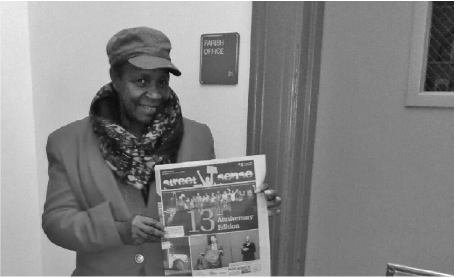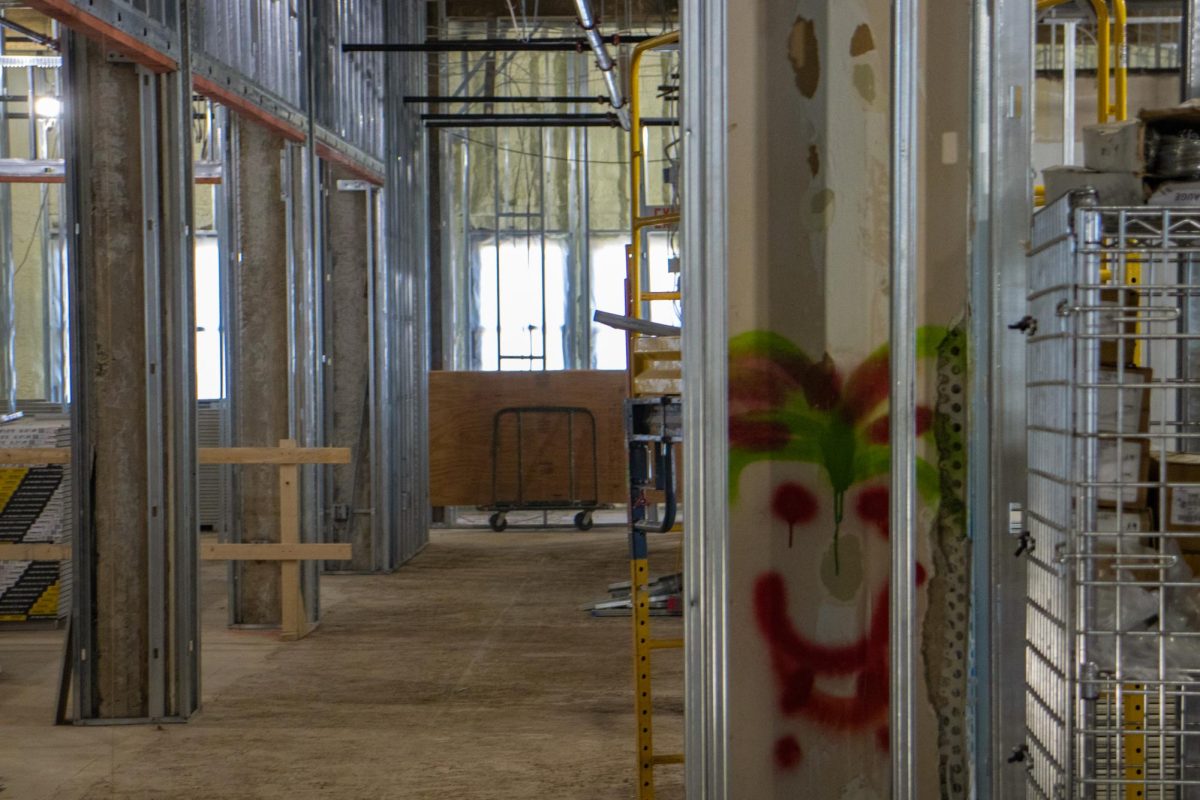Street Sense Sells Upward Mobility: EXTRA! EXTRA!

April 26, 2016
If you’ve walked around the streets of the District of Columbia, you’ve probably seen people who are homeless. Lying on a bench wrapped in a blanket, busking outside a metro station or shaking a cup on a street corner, everywhere you look there is a reminder of how pervasive the issue of homelessness is in the District.
According to the planning and coordinating committee of the Metropolitan Washington Council of Governments, there are 11,623 homeless people in the DC metropolitan region. Policymakers are faced with the issue of housing people in the face of overcrowded and decaying shelters, and finding employment for people with limited job training in an evermore competitive market. Discussions surrounding these topics have been at the frontline of local politics, but there is one key group missing from the conversation: those actually experiencing homelessness.
As Brian Carome, executive director of Street Sense, points out, instead of seeing people who are homeless as fellow human beings, “We see them as other, the alien.” While homelessness may be hard to ignore, the thoughts, feelings and ideas of individuals experiencing homelessness are commonly disregarded.
Street Sense, a nonprofit newspaper written and sold by people who experience homelessness, seeks to change that. Harnessing “the transformative power of storytelling,” Street Sense provides a forum for people who are homeless to share their talents in writing, music, artwork and filmmaking to engage the public in their lives and bring about a greater understanding of what it means to be homeless in the District.
“We’re trying to show that we are more than what people say and think ‘homeless’ is,” said Sasha Williams, a vendor who recently produced her first short film with Street Sense. But the goal of Street Sense is not just to educate the public. It is to help those experiencing homelessness by providing them with a space to express themselves and a job so they can begin to earn an income.
“Everyone who is a vendor here when they met us found themselves otherwise unemployable,” Carome said. “And we can give them a job today.”
The process is simple—one only needs to walk into the Street Sense office and will receive 20 newspapers for free, along with a mentor, to start selling the papers. After completing a training course, new vendors get an official name badge and yellow vest. They can then buy newspapers for 50 cents and sell them on the street for a suggested donation of $2. If interested, vendors can also contribute to the content of the newspapers by submitting stories and other artwork and attending various workshops led by volunteers from several fields of media production.
The content of Street Sense doesn’t suggest stigmas on homelessness. Stigmas often prevent people from seeing that many of those living on the streets have talents and skills but are denied the chance to utilize them.
“Some of the folks who are sleeping outside tonight are really talented writers, and some of them are playwrights and filmmakers,” Carome said. “They’re artists and they just need the right amount of training to nurture that element.”
Street Sense seeks to develop programs to channel vendors’ talents into more sustainable careers. Today, many companies outsource their marketing needs, like blog pieces and filming advertising videos, to third parties. Carome hopes that if Street Sense can train people that are homeless to do this type of work, it will allow them to get a foot in the door of the job market. Additionally, since all of the work is done digitally, it won’t matter if someone doesn’t have home mailing address or can’t afford to buy a suit—two issues that commonly prevented people who are homeless from finding a job.
“In homelessness you lose so much of yourself, you really forget who you are and the world kind of forgets who you are too,” said Street Sense Editor-in-Chief Mary Otto. She hopes that the paper can provide people who are homeless the opportunity to reclaim their identity and share their unique talents and perspectives.


